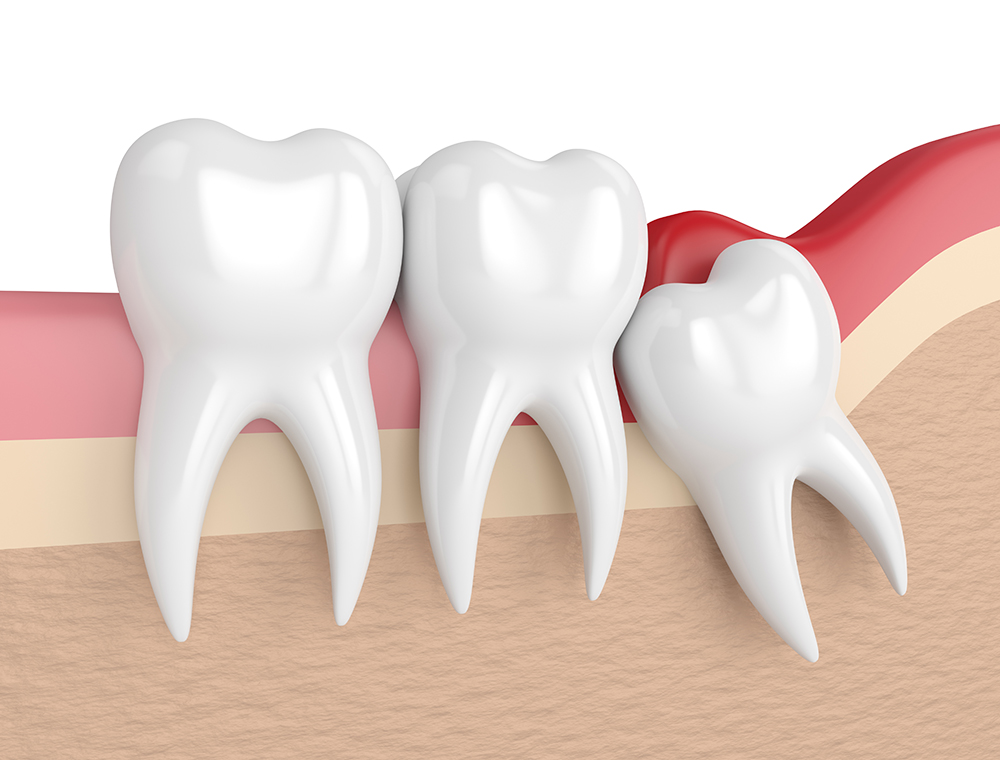Wisdom Teeth Surgery
About wisdom teeth
Wisdom teeth, also known as the third molars, emerge at the back of your mouth and are the last teeth to appear. Unlike your normal teeth that emerge when you are a child, wisdom teeth earn their name because they come up when you are older and considered ‘wiser’ - between ages 16 and 25.
Some people never develop wisdom teeth, and of those who do only some people develop all four.
Why would you need wisdom tooth extraction surgery?
If there is not enough room in your mouth, a wisdom tooth may remain stuck in the gum or come through only partially, possibly at an angle. This wisdom tooth is said to be ‘impacted’ because it is partially or fully buried in the gum tissue or the jawbone.
An impacted wisdom tooth can cause painful inflammation and infection in the surrounding gum tissue and jawbone. Adjacent teeth can also be affected by inflammation of the gum and bone, and if food is trapped and thorough cleaning is difficult or not possible, those adjacent teeth can start to decay.
Sometimes a cyst (a small sac of fluid) can form at the base of an impacted wisdom tooth, damaging the surrounding teeth and gums as well as the bone.
In each of these cases, wisdom tooth extraction is the best solution for oral and general good health.
Even when wisdom teeth don’t seem to be causing problems, a careful assessment may reveal they are prone to disease and need to be removed.
What does the wisdom tooth extraction procedure involve?
Removal of a wisdom tooth may be very straightforward and simple, carried out under local anaesthetic in the dental chair. With a local anaesthetic, pain will be blocked and you will stay awake through the procedure.
For more complex extractions you may require a general anaesthetic and your surgery will be performed as a day surgery at one of our Day Surgery locations across Brisbane & regional Queensland. Often if the tooth is badly impacted, or if you are feeling anxious about your wisdom tooth extraction surgery, then sleeping through the procedure with a general anaesthetic may be a better choice for you.
Dr Zeb McNamara will recommend the best anaesthetic option for you at your pre-operative consultation.
The length of the procedure depends on the number of wisdom teeth being removed, their location, and how badly impacted they are. As a rule, one wisdom tooth extraction can take from 20 minutes to an hour to remove.
How long will it take to recover from wisdom tooth extraction?
Usually it takes up to a week to recover from wisdom tooth extraction surgery. Take time to rest for the first twenty-four hours, and continue to take painkillers to manage the discomfort. Your face may become slightly swollen but this will settle in four or five days. You can apply cold compresses to help bring down the swelling. Stick to softer foods for the first week so that the wound has a chance to heal.
For further reading please see our Post Operative Care Instructions for more information about your recovery after General Anaesthetic surgery.
What are the risks of the procedure?
Dr Zeb McNamara will discuss with you any possible complications or risks of wisdom teeth removal at your pre-operative consultation.


